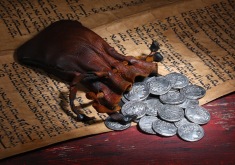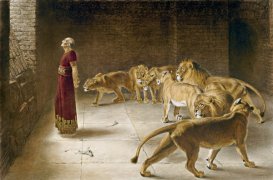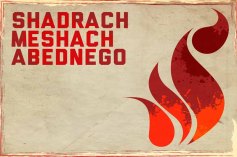When we read much of the P rophetic literature in the Old Testament we must pay attention to the concept of multiple meanings. In fact – much of Scripture speaks not only to those who were alive in that day, but also to us who have lived afterward (up to our current modern times).
rophetic literature in the Old Testament we must pay attention to the concept of multiple meanings. In fact – much of Scripture speaks not only to those who were alive in that day, but also to us who have lived afterward (up to our current modern times).
While this can be encouraging when reading about Jesus telling Nicodemus that he must be born again (John 3) – it can also create some problems when trying to interpret what the prophetic words are actually speaking about.
In the tiny prophetic book of Joel we see this Law of Multiple Meanings at work. Joel is one of the many prophets who were called to warn Judah of impending judgment. They had already seen their sister Israel (10 northern tribes) be led into captivity by Assyria… and now God was trying to get them to learn from that example.
Judah would have none of it.
This impending invasion by Babylon was spoken of using the metaphor of an army of locusts in Joel 1:4. Each stage of growth in the locust is mentioned as a “wave of a great nation” (Joel 1:6). As we are well aware now, Nebuchadnezzar will lead his armies to crush tiny Judah in his conquering of the world. The Babylonian army was vast and powerful – stripping the landscape (just like wave after wave of locusts).
But the locust metaphor is ONLY to be understood as Babylon.
It also refers to heartache, pain, suffering, lost lives of humanity. Satan (mentioned as a Whore of Babylon in Rev 17) has swept across the landscape of humanity and stripped us bear. He has left nothing in his wake… devouring everything as the great Seed Devourer he is (1 Pet 5:8). He destroys and consumes in a seemingly unstoppable force. If left unchecked, he will strip the land clean.
BUT – as Joel goes on to tell us, God has plans to “restore the years the locusts have eaten” (Joel 2:25). A time is coming when Israel (and us) will be saved from the destruction of the Devourer. This refers not only to the great victory of Jesus on the cross, but also to the end of time when He will return on a white horse to destroy Satan once and for all (Rev 19).
(In fact – if you are interested… compare Joel with Revelations…)
Joel predicts that the locust, the worm, the beast who has been stealing, killing and destroying God’s people for countless generations will be fully dealt with just like a locust is crushed under the heel of a boot. God will restore back to His people all that this enemy stole from us.
This was done on the cross… but it is also being done today.
Joel goes on to say, “And it shall come to pass afterward, that I will pour out my spirit upon all flesh” (Joel 2:28). AFTERWARD… (after the Cross)… then God will pour out His Spirit upon His people… and they will be the tools God uses to “restore the years the locusts have eaten”. Peter says that Joel 2:28 happened during Pentecost in Acts 2:16-21. The work of the cross was finished – the locust was crushed – and the Holy Spirit was poured out upon God’s people. These people were now Blessed to be a Blessing
Have you received the Holy Spirit yet?
Be Fruitful & Multiply,
PK




